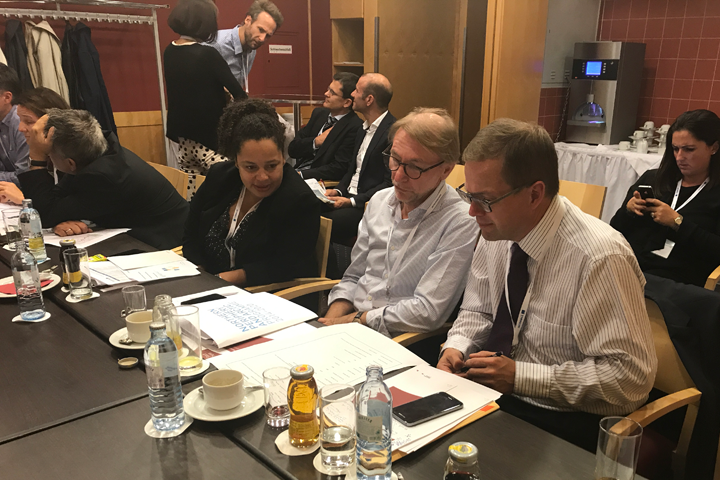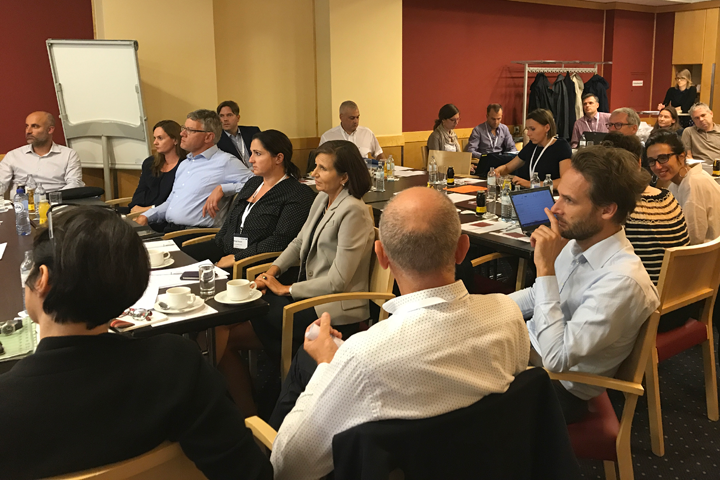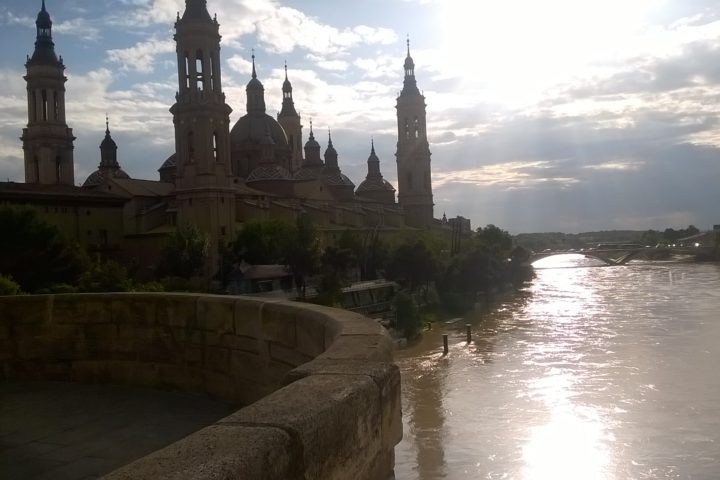Guest bloggers Monica Tanaka and Lise Espersen of Interact report from an on-going process of discussing and aligning on core messages across the Interreg transnational programmes.
Discussions about the future of the EU Cohesion Policy and more specifically Interreg are now in full swing and transnational programmes are taking the time to make their value and impact clear. An important aspect of this work involves demonstrating the strengths of transnational cooperation – what is so special about it?

With a lively atmosphere and some 400 years of accumulated experience between all participants (someone actually calculated this!), heads of transnational cooperation programmes and their communication managers/officers joined forces in Vienna on 6-7 September.
The aim was to discuss and develop a common set of messages and supporting background information which can be used to highlight the added value of transnational cooperation. Loads of special aspects of cooperation are involved. But how to showcase it convincingly?

This is not an easy subject to tackle and there were many different opinions around the table. In fact, the heads of transnational programmes have been discussing this topic since last year together with some member state representatives who are also looking for ways to make transnational cooperation more visible.
One of the best methods to demonstrate what programmes have accomplished is through their projects. For this reason, much of the background information that will be used to support the transnational programmes’ messages will include individual project stories.
During the meeting in Vienna, it was concluded that transnational programmes should continue working together and will meet again in early December.
What do you think is special about transnational cooperation? Share your views and experiences in the comments field below!





Hej.
Good to read about this joined meeting about the cohesion policy gathering people from the various transnational programs . As an old Interreg worker (since 1999, incredible!) I fully support the idea to promote the idea of international cooperation. I have seen that many positive interchanges, that many valuable ideas and that many actions and it would be a pity if it all disappears. The risk for that is there.
I attended the European week of cities and regions three weeks ago, and the main message was that transnational cooperation is threatened. The Brexit issue was really hanging over almost all workshops. One country disappears – probably -, but as was mentioned also 120 billion Euro from the European budget – don’t know if this figure is exact. 27 countries still remain, dealing with a substantial smaller budget. In principle with the same agricultural sector that not is willing to cut, with an immigration/refugee policy that has to be integrated and with a stronger emphasis on common military defence (like it or not). It was interesting to hear people from DG Regio express their concern, and also they are looking for ways to put forward good examples of cooperation projects. Indeed we should promote the value of cooperation. We need the support of the programmes, of DG Regio as well as of national and regional authorities. Let’s work for that!
Hi Dirk
If the truth be known, there is every reason for the EU to continue to work together with the UK after Brexit (and even during the negotiations). However, it is rather difficult to do so if the EU negotiating team makes demands to know what the UK is offering in the way of money, when the EU does not put on the table what they are expecting! The unfortunate stance by Mr Barnier et al, not to progress trade talks at the same time as the negotiations on the “sticking” points is harming the economies across the EU-27 countries as well as the UK because of the uncertainty this is creating.
I really do despair sometimes when he (and Juncker) say there has not been enough progress. How can there be progress if only one party is being upfront and willing to exchange ideas about how the trade deal will work – because after all that is the crux of the matter – you need trade to bring in the funds to invest and contribute to projects.
Mrs May was very clear in her Florence Speech as well as since then, that any projects that the UK is legally required to contribute to because we have signed up to them, the UK will do that. She has offered £36 billion (I think, it keeps changing!) and has given reassurances that what the UK owes, the UK will pay.
I do think that because of the EU’s rather aggressive stance, it appears as if that body wishes to punish the UK – or at least make an “example” of us for leaving (which is against the spirit of Article 50 for leaving the EU. This is very sad because as our UK politicians have said, we wish to continue in a mutually beneficial trade relationship with the EU and all European countries. We are leaving the EU – and not leaving Europe but we need more willingness and cooperation from the EU to make it work for everybody.
Hej Janet.
Thanks for your comment. Earlier I already expressed my mixed feelings about the UK leaving the EU – see my reaction on Christian’s blog from September. I agree on your remark that leading EU officials and politicians might like to state an example and handle the UK quite harsh, afraid probably that easy leaving invites others to follow. I am sorry for it, but the divorce is a consequence of your referendum, leaving everybody behind in confusion. It is often painful, and if leading to (legal) fights it will be hard to become friends afterwards. Let’s keep on talking!
Hello Dirk
Quite willing to keep talking – but the uncertainty of negotiations is damaging businesses on both EU and UK sides. Now Tusk is getting involved in Republic of Ireland (and bribing that government) to make things even more tricky on the Irish – which is definitely not helping. Just hope that it won’t come to any legal fights – because in that case only the lawyers will win.
Enjoy your weekend…